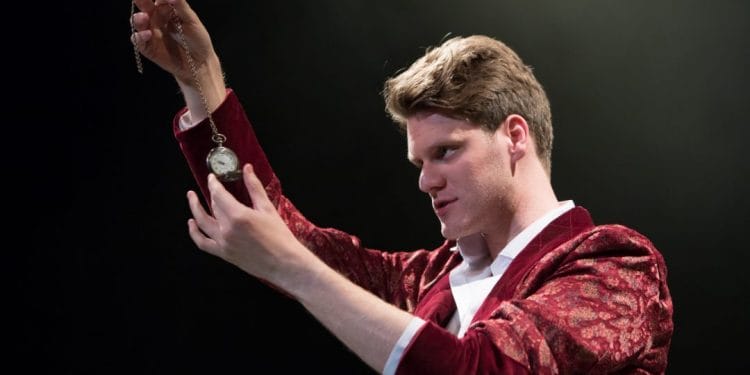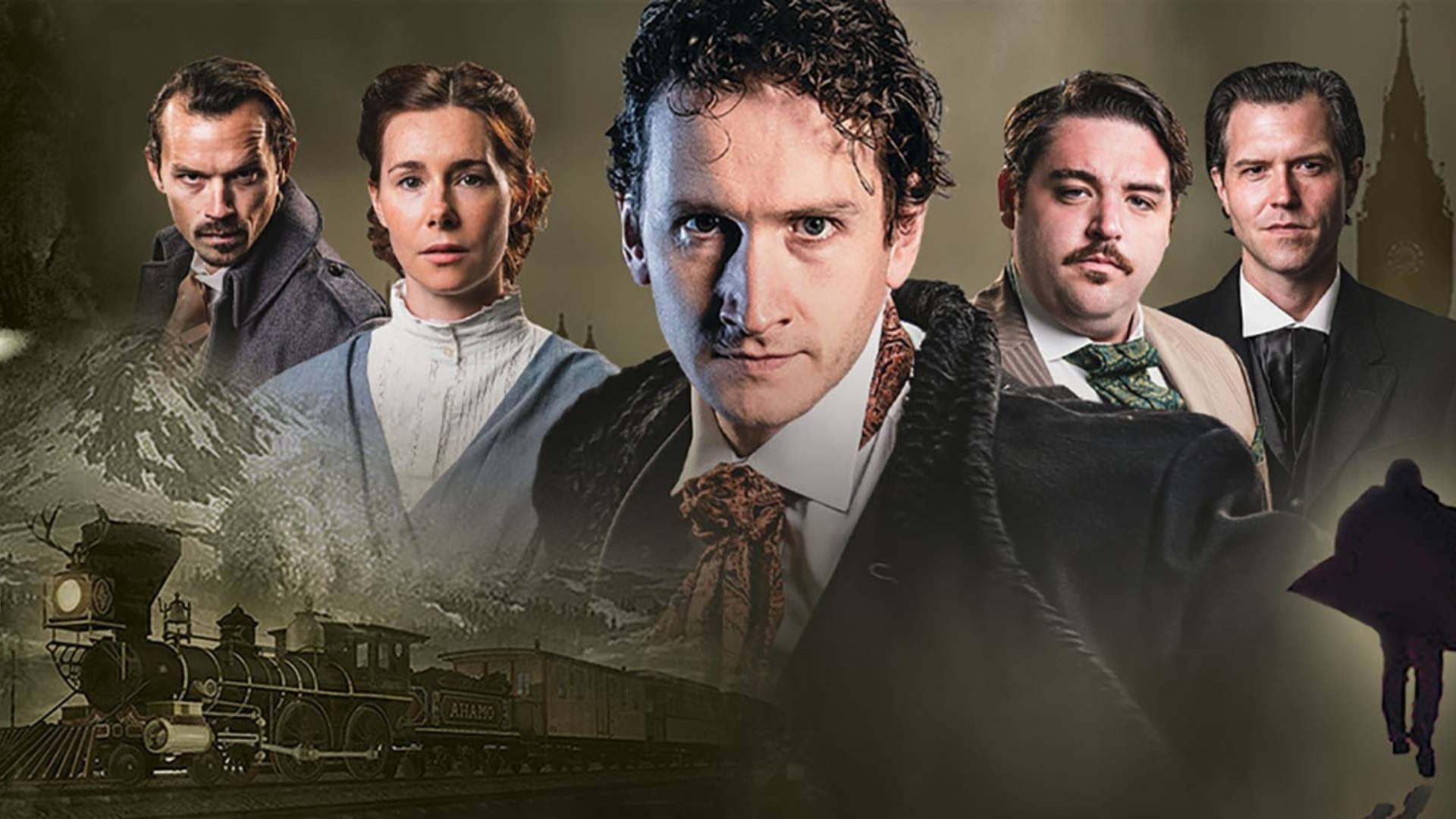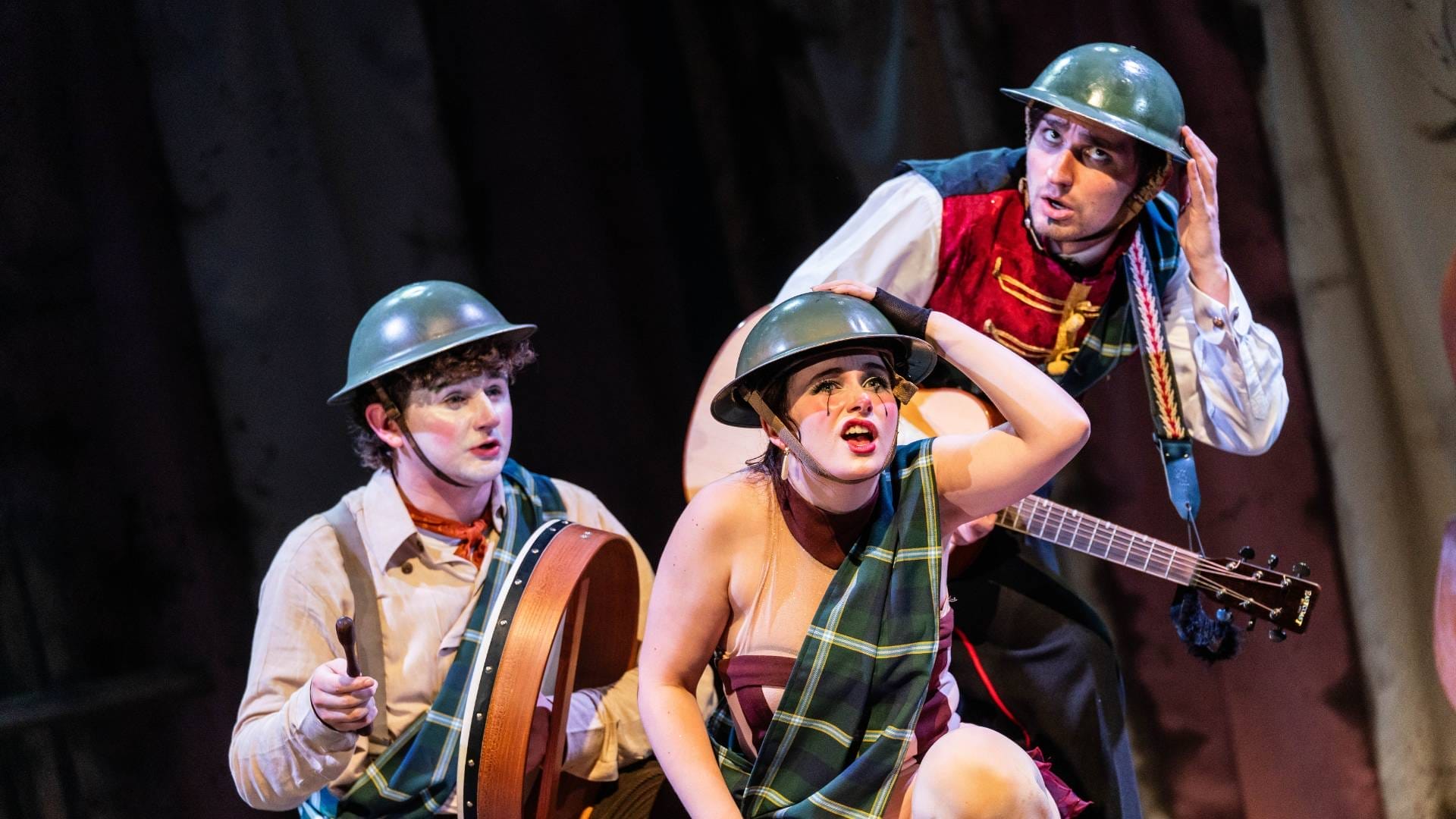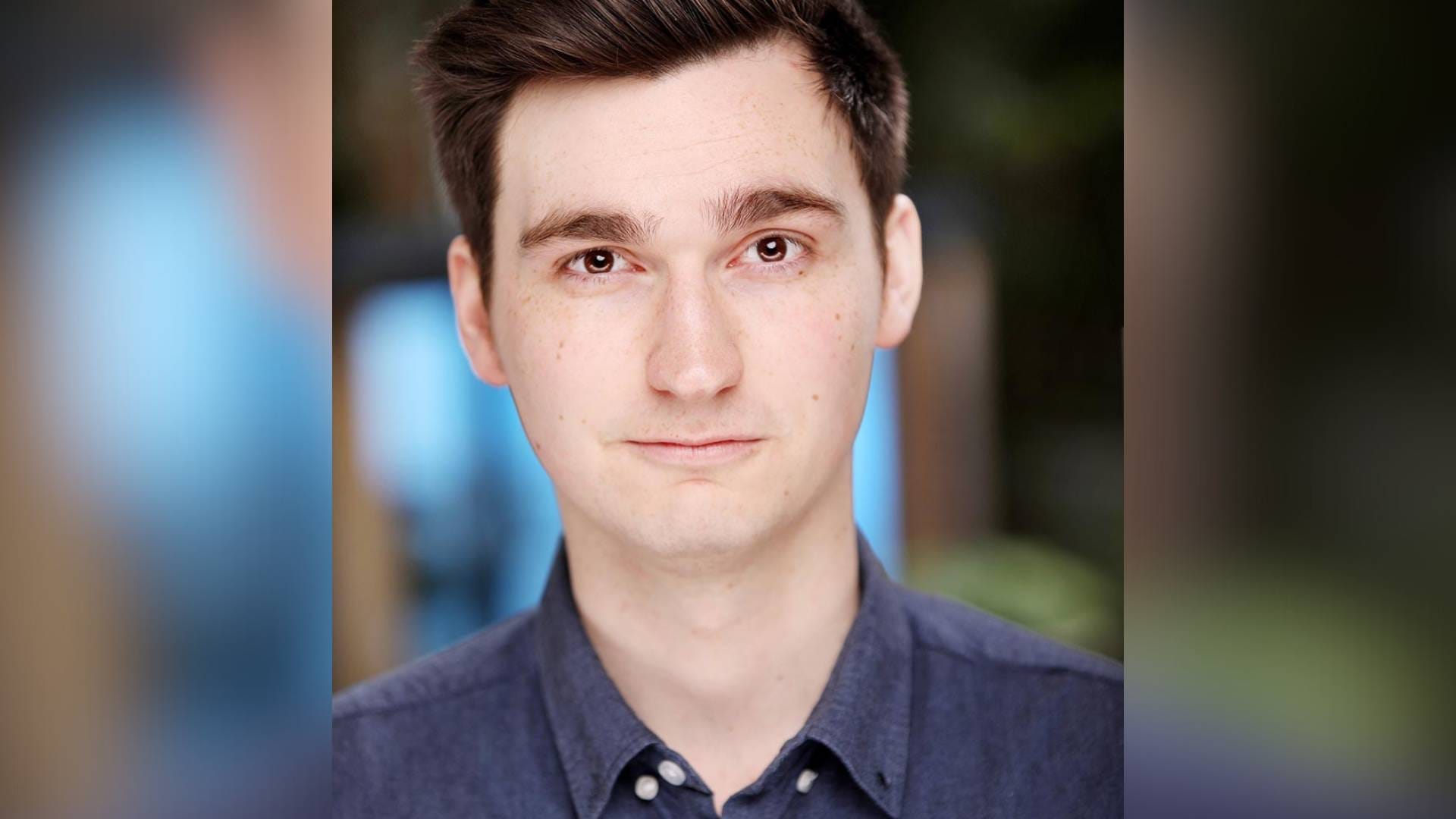This autumn, Blackeyed Theatre will bring to the stage a thrilling new adaptation of The Sign of Four, Sir Arthur Conan Doyle’s epic second Sherlock Holmes novel. Adapted and directed by Nick Lane, with music composed by Tristan Parkes, this spectacular world premiere embarks on a six-month UK tour this September. We spoke to Luke Barton about taking on the iconic role of Sherlock Holmes.
Tour dates and tickets can be found here.
You’re appearing in the Sign of Four, what can you tell us about it?
The Sign of Four is one of Conan Doyle’s earliest Sherlock Holmes stories, the second in the series in fact, but it still has all the essential ingredients of the other books. It starts with an exploration of Holmes’ and Watson’s relationship, followed by the arrival of a client with a strange and intriguing case that Holmes is instantly attracted to. In this instance, the case involves a missing father, a secret trove of treasure, a mysterious wooden-legged man, a boat chase up the Thames before a final revelation of a complex journey of events which led to it all – all set within the backdrop of colonial India. Of course The Sign of Four also introduces the character of Mary Morstan for the first time so there’s something of a love story going on to which develops throughout the series.
Tell us about playing the famous character that is Sherlock Holmes?
Sherlock Holmes is a very interesting character to play because he is so strange! It’s taken me a little while to get wholly comfortable with what I’m doing with the role because so much of what I’m doing feels odd and unnatural. Although, that’s precisely how he is described by Watson in this story. One of the recurring descriptions of Holmes is that he is almost not human, but rather an ‘automaton’ or ‘machine’ that is more like a scientist viewing everything in a cold, objective and non-emotional way. This is of course strange because so much of what we experience and do as humans is emotion orientated. I’ve been interested in how far I can show my Holmes as being someone that does feel or experience emotions but that over time has come to understand their limitations when approaching complex matters. We do things as humans sometimes because it ‘feels’ right or because we ‘feel’ like we want something despite knowing it’s wrong. Holmes is someone who I have found can rise above these influences. It provides him with his genius yet also isolates him, which has been an interesting angle to explore.
What is it about Nick Lane’s adaptation that makes this different to other adaptations of Sherlock Holmes?
Nick’s script is great because he’s really managed to draw out the most riveting aspects of the drama that can be found in the book. When characters embark on long and detailed explanations of their story, Nick has managed to make these incredibly tense and compelling. I also think Nick’s script is much more true to the original novella than many other adaptations. This play is very firmly rooted in the world of Victorian London and I think captures the energy of the story that Conan Doyle creates in the original story. The pace with which the characters are swept into the chaos of the case; the central role of Watson’s voice in the telling of the story and his connection to the audience; the language and tone which are quintessentially Victorian are all aspects of the original book that I think Nick’s adaptation retains.
How does music play a part in the production?
Music is absolutely essential to this production and I think one of the aspects that people are going to remember about this production long after they’ve left the theatre. Our musical director Tristan, along with the actor-musicians of the cast, have really worked hard to provide a whole other language to the piece through the music. The musical score really adds to the tension and energy of difference scenes, transporting the audience to different locations. But the music is also adding a really wonderful spirit to the piece which I think sets it apart from other productions. The play begins with the musicians in the space setting the tone to the audience and throughout the show we have the music – which is all played by the actors – front and centre. It’s filmic and says, ‘we are telling you a story.’
How have rehearsals been going and have you and the rest of the cast been getting to know each other well?
Rehearsals have been going extremely well. We have a lovely company of creatives and we are all getting on brilliantly. There is a lot of laughter and energy in the room which is absolutely how it should be and I’m looking forward to the fun we’ll all have on the road. Perhaps the best thing has been the collaborative atmosphere that Nick has created in the rehearsal room. We are all building this show and have all had a hand in moulding it and making it what it is. Team Work and a collective investment in the piece is going to be so good for touring as we take the show on the road and see it develop as it goes from place to place.
What are you most looking forward to about being out on tour?
Touring is always a great experience because in a way I feel like it’s precisely what acting and theatre should be: dynamic and open to change. Theatre is live and organic, it should be open to change, and nothing proves this better than being on the road with a show. From my experience of touring in the past, different audiences and different theatres all contribute to making a show different every night and that’s really exciting. It’s part of the acting tradition after all – travelling players have long been an essential part of theatrical storytelling. Of course it’s always great to live and breathe different areas of the country too.

















